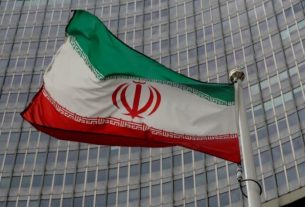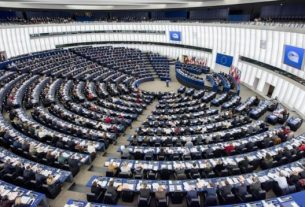A row between Canada and India over the murder of a Sikh separatist has stoked talk of political friction among some Sikhs and Hindus in the diaspora, though others say it’s overblown.
After Mr Trudeau’s public accusation on Monday that India may have been behind the killing of Hardeep Singh Nijjar on Canadian soil, a clip surfaced on social media showing the head of a US-based Sikh separatist group calling for Hindu Canadians to return to India.
“Indo-Canadian Hindus, you have repudiated your allegiance to Canada and the Canadian constitution,” said Gurpatwant Singh Pannun, head of Sikhs for Justice, in a video that was reportedly filmed on 12 September.
“Your destination is India. Leave Canada. Go to India,” he said.
The video of Mr Pannun, a dual Canadian-US citizen who was a friend of Mr Nijjar, was widely shared online and in Indian media.
It caught the attention of Chandra Arya, a Liberal member of Canada’s parliament.
“I have heard from many Hindu-Canadians who are fearful after this targeted attack,” Mr Arya, a Hindu, wrote in a post on X, formerly known as Twitter.
Mr Arya said he believed the comments were made to “divide the Hindu and Sikh communities in Canada”. He declined to comment to the BBC.
The exchange laid bare apparent divisions within the Indian diaspora, which Canada’s bombshell allegation has done little to alleviate. India denies orchestrating Mr Nijjar’s murder.
Tensions were up in the wake of Mr Nijjar’s murder. His supporters staged protests across Canada in the wake of his killing, accusing India of being behind his death.
Those demonstrations faced counter-protests from supporters of the Indian government. Posters for the event, which labelled Indian diplomats as “killers”, were denounced by New Delhi officials.
India has also spoken out about vandalism targeting Hindu temples in Canada with “anti-India graffiti”.
Mr Nijjar was a vocal advocate for the creation of a separate homeland for Sikhs – Khalistan – in the Indian state of Punjab. India has strongly opposed the Khalistan movement, and labelled Mr Nijjar as a terrorist.
In an interview with the BBC, Mr Pannun said his remarks did not intend to target all Hindus, but rather those who align with the interests of the Indian government, which he said happens to be majority Hindu.
Indo-Canadians who spoke to the BBC said that while their community was taken aback by Canada’s allegations, they have not experienced threats to their safety or heightened tensions day-to-day.
Canada has a large Indo-Canadian population with deep ties to both countries. There are 1.86m residents of Indian descent in Canada, with diverse religious and socio-economic backgrounds.
Ranbir Grewal, a tech professional in Toronto whose family is Sikh, said his social group is a mix of Hindu and Sikh Canadians – all of whom denounce remarks that Hindu Canadians must leave Canada.
“Those are relatively offensive statements, and they get a reaction, people are talking about it,” Mr Grewal said.
Mr Grewal also spoke out against the government of India’s recently issued travel advisory for Canada, warning its citizens to exercise “utmost caution” when visiting the North American country because of the potential for violence.
“I’ve been going about meeting people the same way, my day-to-day life hasn’t changed much,” he said.
He said he believes any inflammatory remarks are being made to certain factions of the Indo-Canadian community, and do not represent how the majority feel.
Radhika Sharma, a Vancouver-based student who is Hindu, said she views talk of a rift as a “political” issue.
She added that some, including her Sikh friends, have been upset by Mr Trudeau’s accusation, as his government has not yet provided evidence publicly to back it up.
“We don’t know if it’s true or not, but if it is then it should have supportive evidence,” she said. “This is just creating a tussle and a war between two great countries.”
Rupinder Liddar, a PhD student at McGill University in Montreal, whose research focuses on the Sikh-Canadian community, said she has seen misinformation being spread online, conflating the Khalistan movement with violence or terrorism.
But she said that despite a sense of political divide among some in the Indo-Canadian community, Hindus and Sikhs in Canada have always had close ties.
“There should be no tension between the Sikh-Canadian and Hindu-Canadian communities,” she said, “rather this is all about foreign interference in Canada by a foreign government.”__BBC.com





